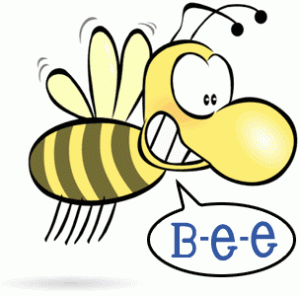
I’ve just come across this website which helps you to practice almost every error I come across in students’ writing. It’s particularly useful because it will give you immediate feedback and an explanation if you get something wrong.
Pay particular attention to fused sentences and sentence fragments. These mistakes will cost you dearly so sort it out!Also the classic error with apostrophes is to just leave them out because you’re not sure whether or not to use them, so it’s probably a good idea to sort that out too while you’re at it!
http://www.chompchomp.com/
Here’s another site that gets you to play a fun game so you can identify the parts of a sentence:
http://www.kwarp.com/portfolio/grammarninja.html
 Here are a few links to force your brain into thinking about the least fascinating aspect of becoming good at English. Spelling correctly.
Here are a few links to force your brain into thinking about the least fascinating aspect of becoming good at English. Spelling correctly.





